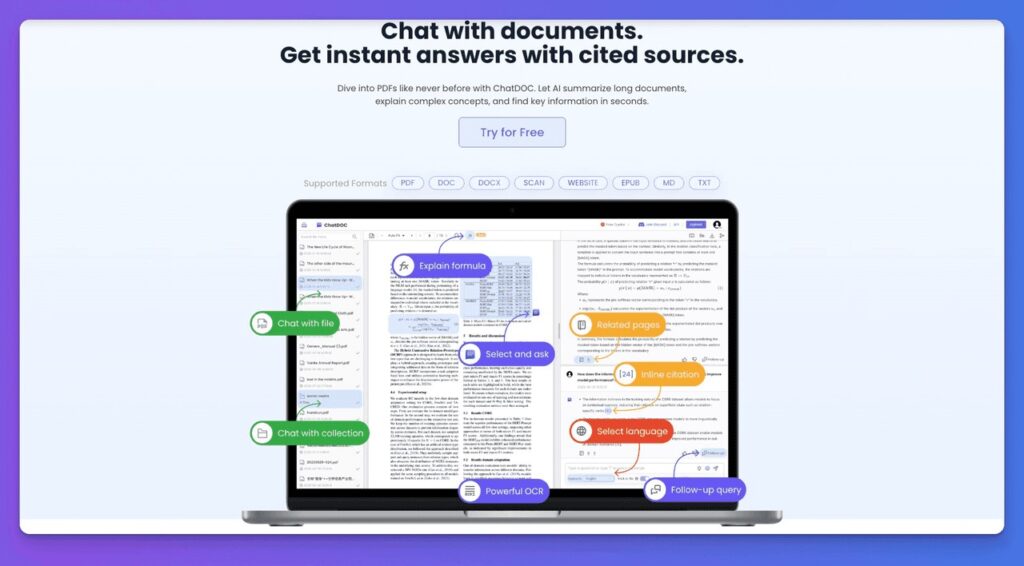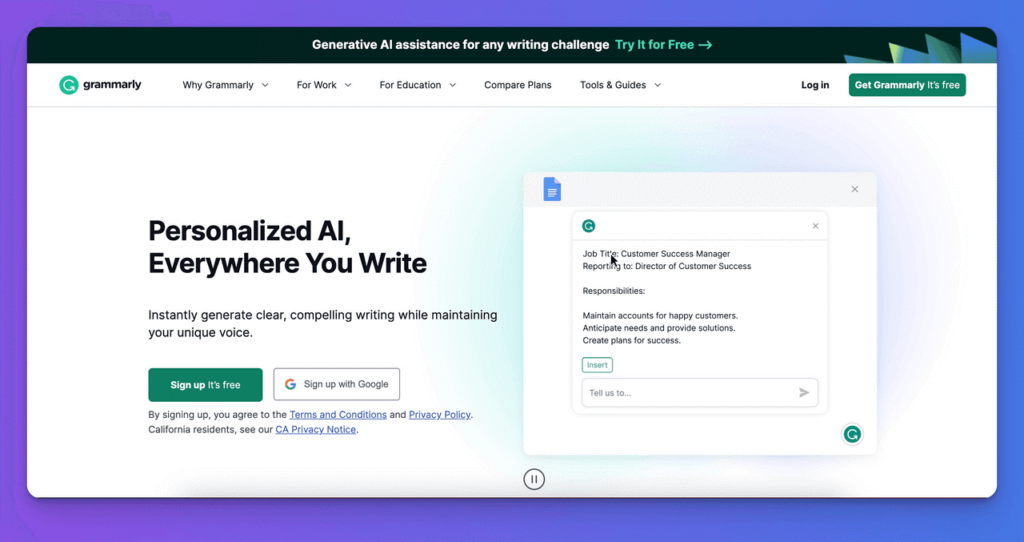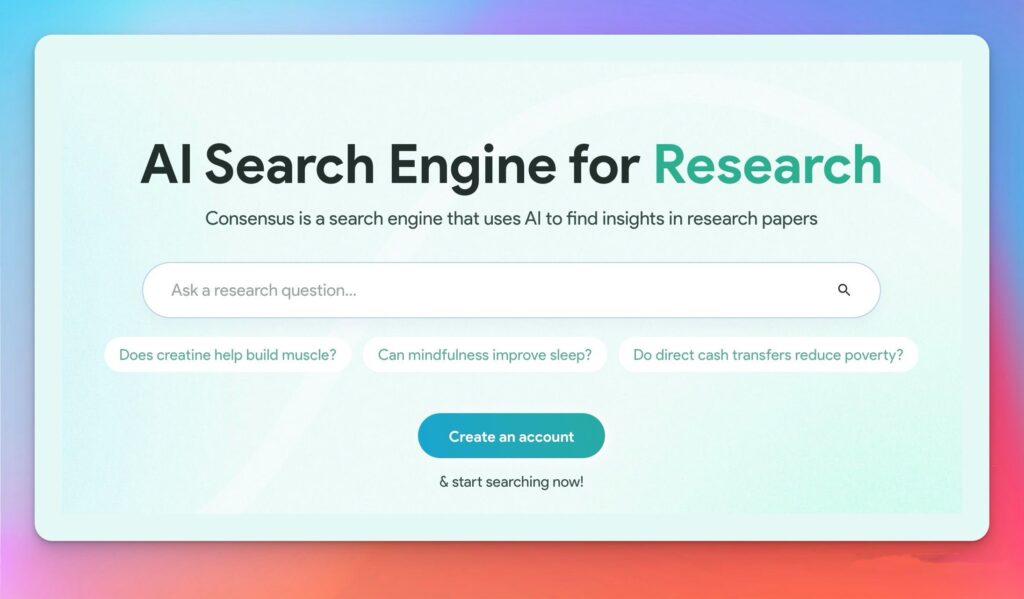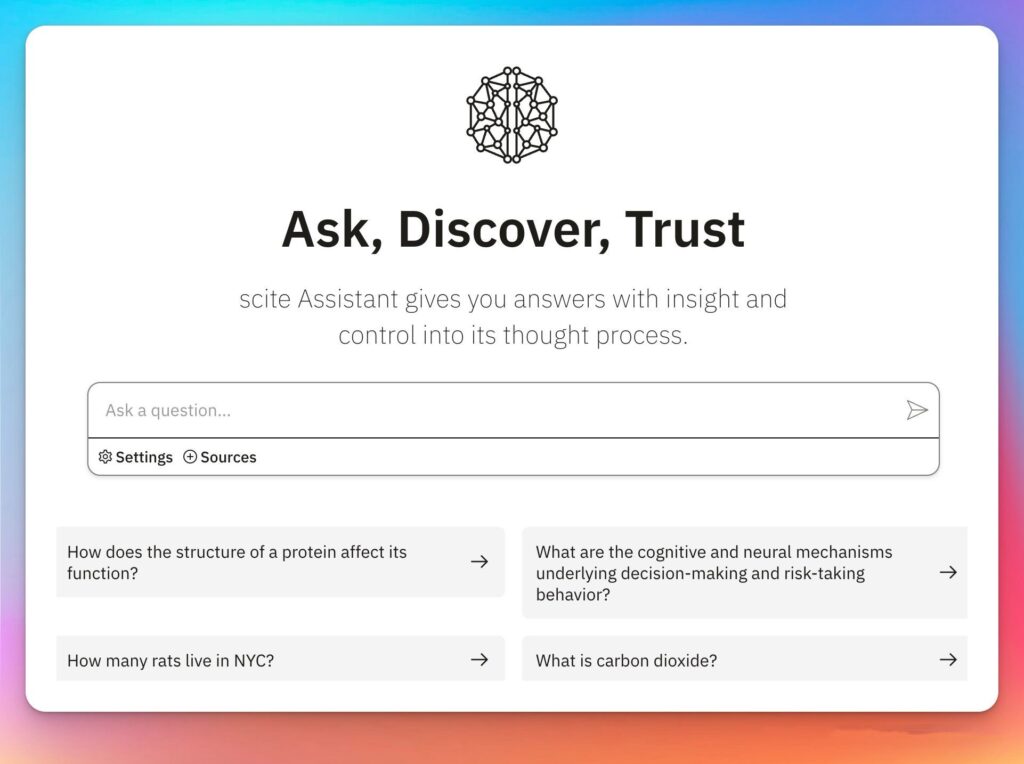5 AI Tools That Are Revolutionizing Research Writing in 2024
In 2024, the research and academic landscape is witnessing a tremendous shift, thanks to AI-powered tools that are helping researchers work smarter, not harder. These innovative tools are not only saving time but also reshaping how we approach academic writing, literature reviews, and citations.
Let’s dive into 5 game-changing AI tools that are revolutionizing research writing this year.
1. ChatDOC – AI Paper Summarizer
If you’ve ever felt overwhelmed by the sheer volume of research papers you need to read, ChatDOC is the solution you’ve been waiting for. This AI paper summarizer takes your PDF files and breaks them down into conversational summaries. Instead of spending hours combing through research papers, you can upload your document and let ChatDOC handle the rest. What makes ChatDOC special is its ability to provide AI-generated insights with citations that can be easily verified. Researchers can also engage with the document interactively highlighting sections, asking follow-up questions, and getting in-depth responses for selected text or tables.
Key Features:
– AI-generated summaries in seconds.
– Fact-checking with clickable page numbers and footnotes.
– Supports multiple formats: PDF, .docx, txt, ePub, and more.
– Recognizes formulas and tables for seamless interaction.
– Multilingual support (including English and Chinese).

2. Grammarly – The Ultimate Writing & Editing Tool
Grammarly is an old favorite for many writers, and for good reason. This AI-powered tool has continued to evolve and adapt, and in 2024, it remains indispensable for academic writers. Beyond grammar checks, Grammarly provides tone suggestions, style improvements, and even originality detection to ensure that your work is polished and plagiarism-free.
With GrammarlyGO, a new feature, it has stepped into the generative AI space, allowing users to quickly write, rewrite, and ideate using its advanced algorithms. If you’re working on a research paper, Grammarly can help you maintain a professional tone, improve clarity, and even suggest more concise phrasing.
Key Features:
– Grammar and style checks for enhanced clarity.
– Tone advice to ensure your message is appropriate.
– Built-in plagiarism checker.
– Generative AI (GrammarlyGO) for quick drafts and responses.

3. Trinka – AI Writing and Grammar Checker Tool
Trinka is like Grammarly’s academic twin, offering even more tailored features for technical and academic writing. With over 3,000 grammar, tone, and style corrections, Trinka ensures that your research writing maintains the precision required for scholarly work.
One of Trinka’s standout features is its paraphrasing tool and AI content detector, ensuring academic integrity throughout your writing process. If you’re handling complex technical language or academic jargon, Trinka excels at providing suggestions that enhance both clarity and readability without compromising on technical detail.
Key Features:
– Tailored corrections for academic and technical writing.
– Paraphrasing tool and AI content detector.
– Proofreading tools for comprehensive error assessments.
– Support for multiple languages like Spanish and German.

4. Consensus – AI Search Engine for Research
Navigating the vast sea of academic research has never been easier, thanks to Consensus, an AI-powered search engine that simplifies the research process. Consensus uses machine learning to analyze over 200 million scientific papers, providing you with AI-generated summaries from credible, peer-reviewed studies.
What sets Consensus apart is its ability to offer trustworthy, ad-free results while ensuring that each summary is backed by reputable sources. If you’re looking for the most relevant studies for your literature review or dissertation, Consensus is an invaluable tool that saves time and enhances the depth of your research.
Key Features:
– AI-driven insights from the extensive scientific literature.
– Trusted results linked to peer-reviewed sources.
– Ad-free experience with instant analysis.
– High-quality, reliable content recommendations.

5. Scite – AI for Smart Citations
Scite revolutionizes the way researchers cite and analyze academic papers. Using machine learning, Scite not only provides traditional citations but also offers Smart Citations that indicate how a paper has been cited in other works, whether positively, negatively, or in neutral terms.
This feature adds a new layer of depth to your literature review, allowing you to critically assess the impact of a study. With customizable dashboards and comprehensive citation checks, Scite promotes collaboration and engagement in academic research.
Key Features:
– Smart Citations for intuitive research navigation.
– Customizable dashboards to manage your research collection.
– Citation statement searches to explore in-depth discussions.
– Journal metrics and author rankings for additional insights.

In 2024, these five AI tools—ChatDOC, Grammarly, Trinka, Consensus, and Scite—are revolutionizing how researchers write, edit, and engage with academic material. Whether you’re summarizing complex papers, checking for grammar errors, or organizing citations, these tools help streamline the research process, enabling you to focus on producing high-quality work.
As AI continues to evolve, the academic world will no doubt benefit from even more advanced tools, but these five are already transforming research writing in significant ways.

